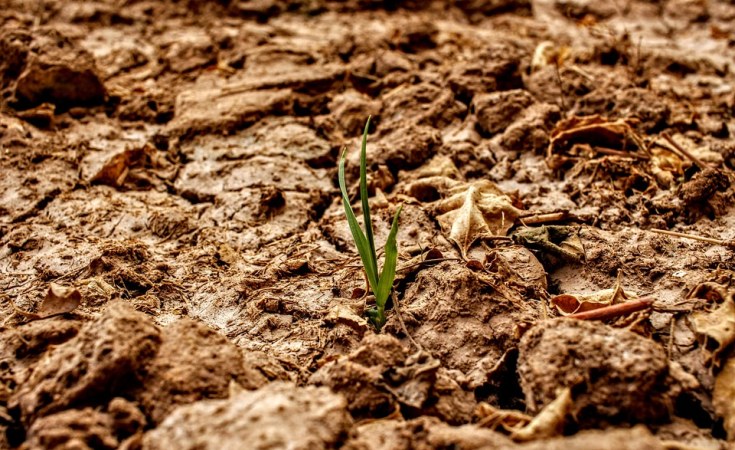Pretoria, South Africa — Groundwater pollution significantly affects the prevalence of waterborne diseases. This form of pollution occurs when hazardous substances, such as pathogens, chemicals, and heavy metals, seep into underground aquifers, the primary source of drinking water for approximately 70% of the 250 million people living in the SADC region.
The consumption of contaminated groundwater can lead to a host of health issues, including gastrointestinal infections, cholera, dysentery, and other serious illnesses. Addressing this issue is crucial for safeguarding public health and maintaining the integrity of ecosystems that depend on clean groundwater.
"The link between contaminated groundwater and waterborne diseases underscores the urgency of protecting these vital water resources. To mitigate these dangers, concerted efforts are required to prevent pollutant infiltration, monitor water quality, and enhance water treatment facilities", said Gerald Mundondwa, SADC-GMI Senior Groundwater Specialist.
The link between contaminated groundwater and waterborne diseases underscores the urgency of protecting these vital water resources. To mitigate these dangers, concerted efforts are required to prevent pollutant infiltration, monitor water quality, and enhance water treatment facilities",Gerald Mundondwa, SADC-GMI Senior Groundwater Specialist
The challenge is amplified by the fact that once groundwater is polluted, remediation is often a complex and costly process.
As National Groundwater Awareness Week brings attention to this critical resource, we must confront the challenges threatening it, particularly groundwater pollution. This complex environmental issue carries significant health risks for humans and detrimental consequences for ecosystems. Various activities drive pollution, such as the extensive application of pesticides and fertilizers in agriculture, which introduces harmful chemicals into the aquifers.
Additionally, the inadequate disposal of hazardous substances, leaks from subterranean tanks and pipelines, and landfill leachate can introduce toxins into groundwater reserves.
Addressing these challenges is pivotal for the preservation of groundwater quality and the prevention of the dire ecological and health repercussions associated with its contamination.
Eng. James Sauramba - SADC-GMI Executive Director believes that groundwater contamination is indeed a persistent problem that can endure for years, making remediation efforts challenging and costly. The process of purifying contaminated groundwater is fraught with difficulties and substantial expenses, partly due to the inaccessibility and vast spread of aquifers.
In the SADC region, the state of groundwater pollution is a growing concern as it poses a significant threat to the region's ecosystem and the health of millions of people who rely on groundwater as their primary source of drinking water. Globally it is estimated that groundwater sources provide 43% of all water used for irrigation.
To tackle groundwater pollution efficiently, a multifaceted approach is essential--one that brings together the concerted efforts of various stakeholders. This includes governments, industries, communities, and environmental organizations, all working in harmony to develop and implement sustainable practices and robust regulations.
Preventative measures are also crucial, as they are typically more cost-effective and practical than attempting to restore already-polluted groundwater to a safe state. Collaboration and comprehensive planning are the keys to ensuring the long-term protection and purity of our invaluable groundwater resources.
Indeed, individual actions play a crucial role in reducing groundwater pollution. By being mindful of the way, we handle and dispose of waste, we can each help to protect this critical resource.
Here are some practical steps that individuals can take to minimize their impact on groundwater quality:
Ensure proper disposal of hazardous waste: Chemicals should never be poured down the drain or onto the ground, as they can seep into groundwater. Hazardous waste should be disposed of at designated collection sites.
Inspect and maintain underground tanks: Regular testing for leaks in underground oil tanks is essential. Consider replacing underground tanks with above-ground tanks to prevent leaks into the soil that could reach the groundwater.
Practice safe storage of hazardous materials: Store fuels and chemicals in secure containers and designated safe areas to avoid accidental spills.
Use chemicals responsibly: When using pesticides, fertilizers, or other chemicals, follow the instructions carefully, and apply them in the recommended amounts to prevent excess from entering the groundwater.
Maintain septic systems: Have septic systems pumped and inspected every five years to prevent malfunctions that could lead to groundwater contamination.
Monitor private wells: For those with private wells, it's important to inspect the immediate surrounding area for potential contamination sources and test well water regularly, especially if there is a heightened risk of pollution.
By adopting these practices, individuals can make substantial contributions to protecting groundwater from pollution, ultimately safeguarding our health and the environment.
Thokozani Dlamini is SADC-GMI Communication and Knowledge Management Specialist


